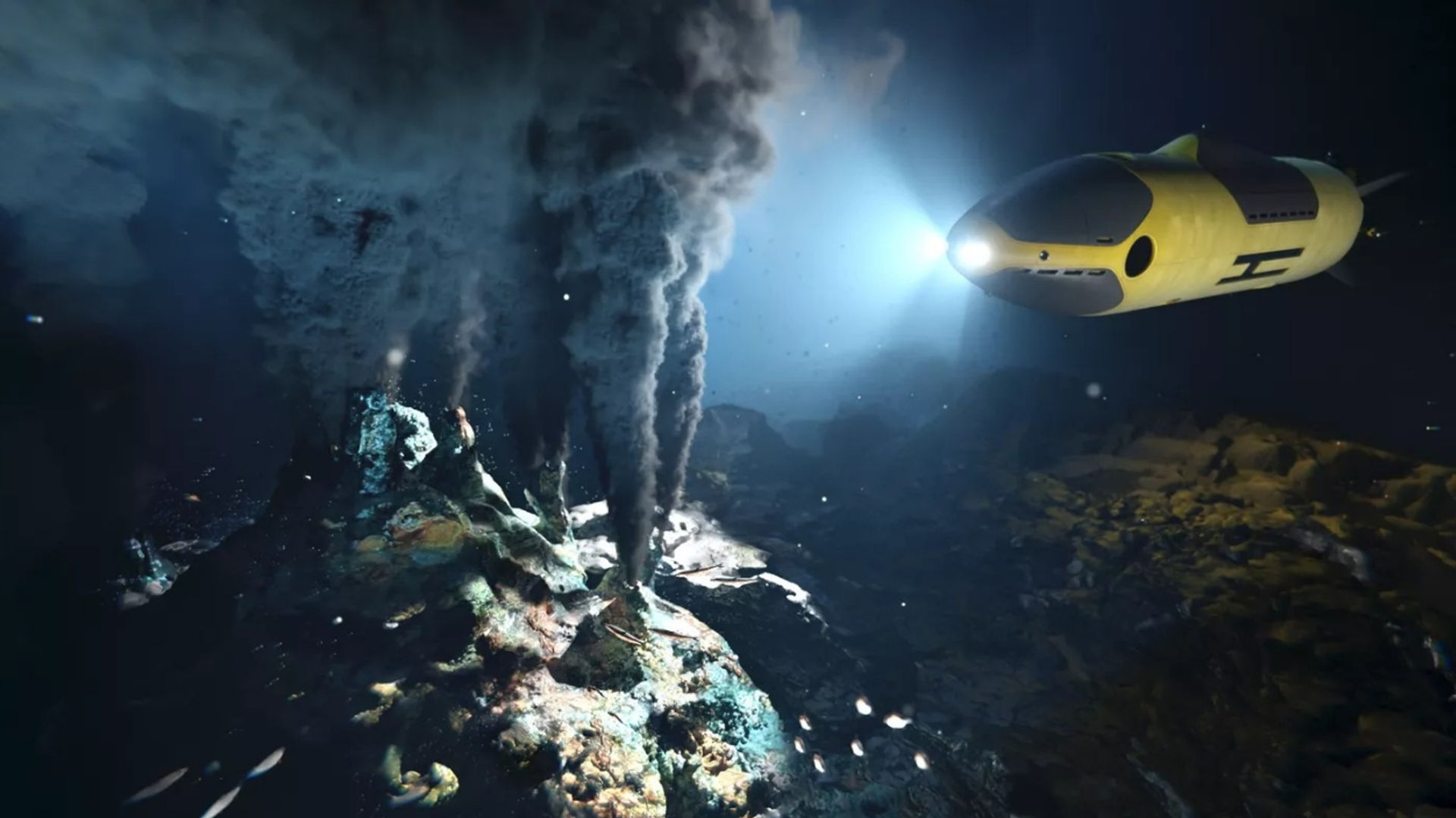https://en.sputniknews.africa/20230814/1061332579.html
Russia to Present New Drone for Protecting Underwater Pipelines at Army-2023 Forum
Russia to Present New Drone for Protecting Underwater Pipelines at Army-2023 Forum
Sputnik Africa
Apart from protecting pipelines, the advanced Argus unmanned underwater vehicle can also be used for exploring oil or gas fields and conducting rescue... 14.08.2023, Sputnik Africa
2023-08-14T13:50+0200
2023-08-14T13:50+0200
2023-08-14T18:15+0200
army-2023
drones
defense
russia
international
https://cdn1.img.sputniknews.africa/img/07e7/08/0e/1061332758_28:0:1280:704_1920x0_80_0_0_0424010bd9a5a5ce238774edf52594f9.png
"Rubin", the Russian Central Design Bureau for Marine Engineering, has developed a new maritime drone to protect underwater pipeline infrastructure, the company’s press service told Sputnik.According to the press service, the so-called autonomous unmanned inhabited underwater vehicle “Argus" will be on display for the first time at the international military-technical forum Army-2023, which will be held in Kubinka outside Moscow on August 14-20.After the pipeline is laid, the Argus will monitor its technical condition, the spokesman said, adding that the drone is capable of detecting an oil or gas leak, as well as a pipe displacement.Additionally, the vehicle can be used for conducting the underwater exploration of minerals and in search-and-rescue operations, according to the spokesperson. They noted that the 3.2-ton Argus is powered by a lithium-ion battery and when in the surface position, it can use very high-frequency waves-related radio equipment, satellite communication, and a Wi-Fi system.Nord Stream BlastsIt seems that the development of the drone is especially topical in light of last year's blasts which disrupted the Nord Stream pipeline network. The pipelines, built to deliver gas under the Baltic Sea from Russia to Germany, were hit by explosions in September 2022. The pipeline's operator, Nord Stream AG, said that the damage was unprecedented and it was impossible to estimate the time repairs might take.Denmark, Germany and Norway have left Russia out of their investigations into the attack, prompting Moscow to launch its own investigation over the charge of international terrorism.No official results of the investigations have yet been announced, but Pulitzer Prize-winning US investigative journalist Seymour Hersh published a report in February 2023, alleging that the explosions had been organized by the United States with the support of Norway. Washington has denied any involvement in the incident.
https://en.sputniknews.africa/20230814/1061327918.html
russia
Sputnik Africa
feedback@sputniknews.com
+74956456601
MIA „Rossiya Segodnya“
2023
News
en_EN
Sputnik Africa
feedback@sputniknews.com
+74956456601
MIA „Rossiya Segodnya“
Sputnik Africa
feedback@sputniknews.com
+74956456601
MIA „Rossiya Segodnya“
army-2023, drones, defense, russia, international
army-2023, drones, defense, russia, international
Russia to Present New Drone for Protecting Underwater Pipelines at Army-2023 Forum
13:50 14.08.2023 (Updated: 18:15 14.08.2023) Apart from protecting pipelines, the advanced Argus unmanned underwater vehicle can also be used for exploring oil or gas fields and conducting rescue operations.
"Rubin", the Russian Central Design Bureau for Marine Engineering, has developed a new maritime drone to protect underwater pipeline infrastructure, the company’s press service told Sputnik.
According to the press service, the so-called autonomous unmanned inhabited underwater vehicle “Argus" will be on display for the first time at the
international military-technical forum Army-2023, which will be held in Kubinka outside Moscow on August 14-20.
A Rubin spokesperson explained that upon detecting an unknown object near a hypothetical pipeline, the 5.6-meter-long drone “will identify the object as a source of danger and then transfer information to the support vessel [on the surface].”
After the pipeline is laid, the Argus will monitor its technical condition, the spokesman said, adding that the drone is capable of detecting an
oil or gas leak, as well as a pipe displacement.
Additionally, the vehicle can be used for conducting the underwater exploration of minerals and in search-and-rescue operations, according to the spokesperson. They noted that
the 3.2-ton Argus is powered by a lithium-ion battery and when in the surface position, it can use very high-frequency waves-related radio equipment,
satellite communication, and a Wi-Fi system.
It seems that the development of the drone is especially topical in light of last year's blasts which disrupted the Nord Stream pipeline network. The pipelines, built to deliver gas under the Baltic Sea from Russia to Germany, were hit by explosions in September 2022. The pipeline's operator,
Nord Stream AG, said that the damage was unprecedented and it was impossible to estimate the time repairs might take.
Denmark, Germany and Norway have left Russia out of their investigations into the attack, prompting Moscow to launch its own investigation over the charge of international terrorism.
No official results of the investigations have yet been announced, but Pulitzer Prize-winning US investigative journalist Seymour Hersh published a report in February 2023, alleging that the explosions had been organized by the United States with the support of Norway. Washington has denied any involvement in the incident.

![A GLONASS [Global Navigation Satellite System] satellite mock-up on display at the exhibition Space -- Elections -- Telecommunications A GLONASS [Global Navigation Satellite System] satellite mock-up on display at the exhibition Space -- Elections -- Telecommunications - Sputnik Africa, 1920, 14.08.2023](https://cdn1.img.sputniknews.africa/img/07e7/08/0e/1061328088_0:410:3073:1639_1920x0_80_0_0_5631f6b553222748a202ee93bf852cd5.jpg)
